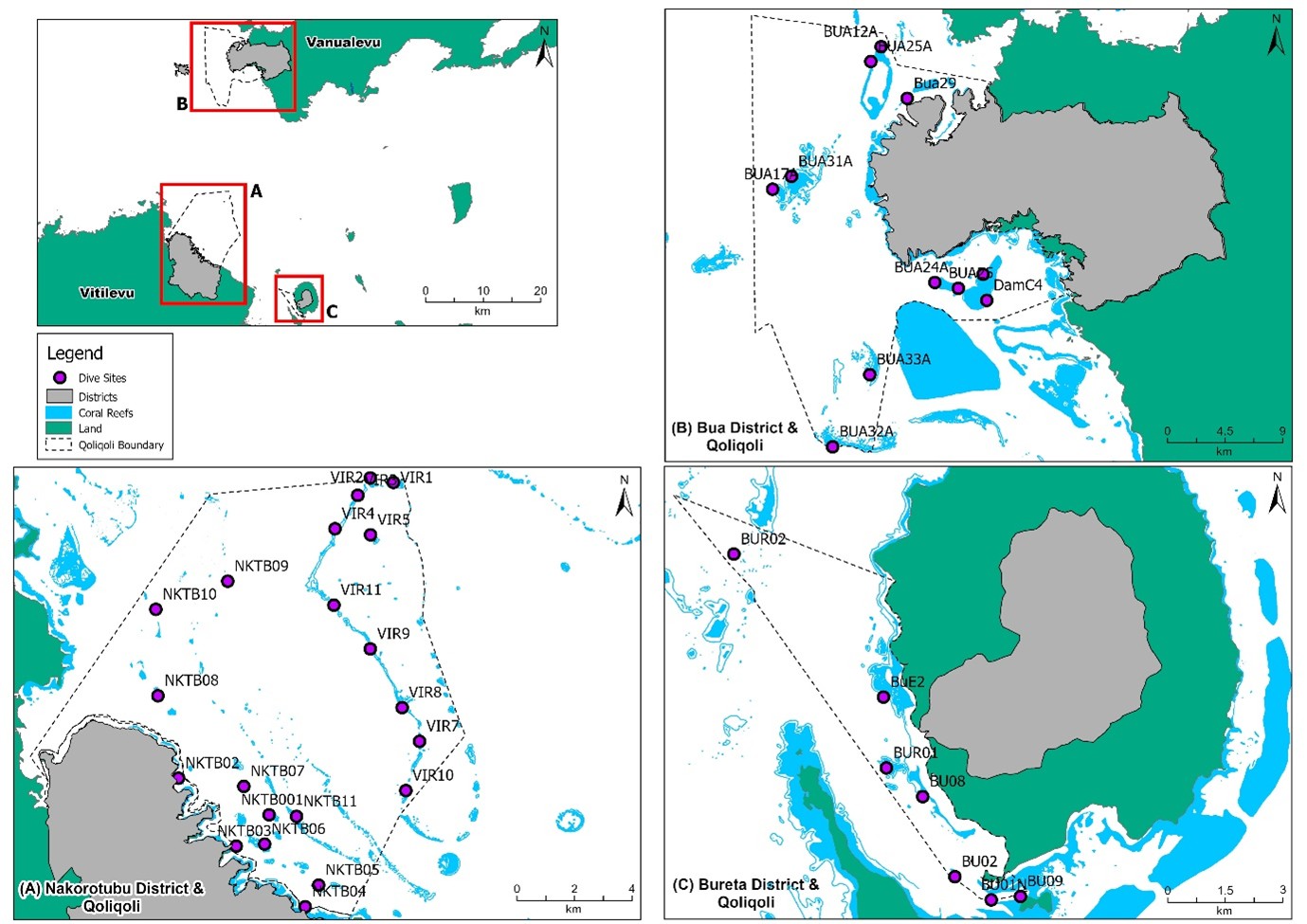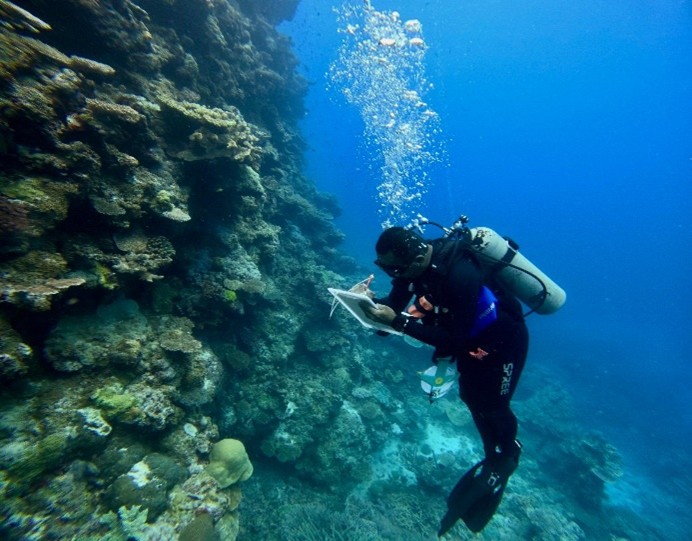As part of our ongoing support for community-based marine resource management, the Wildlife Conservation Society (WCS) Fiji conducted biological surveys from the 30th of October to 5th December 2024, through the Climate Adaptation and Protected Areas (CAPA) Initiative. These surveys took place across the districts of Bua, Bureta, and Nakorotubu, to monitor the status of fish stocks within community-designated no-take areas (tabu) and fished areas within their traditional fishing grounds (‘iqoliqoli areas”). WCS aims to gather evidence that supports local rightsholder decision-making by assessing the effectiveness of management strategies and informing adaptive approaches that underpin food security and safeguard coral reef systems.

Figure 1. Map of surveyed sites in A) Nakorotubu, B) Bua, and C) Bureta Fishing Grounds.
Science Data Collection
Our team used the UVC Belt transect method to assess fish populations in no-take and fished areas, documenting the abundance and biomass of key fish families such as Acanthuridae, Scaridae, Lutjanidae, and Serranidae.
Alongside fish surveys, benthic cover was also recorded using point intercept transects to evaluate conditions of the reef substrate, including coral general, macroalgae, rubble, and sand. This helps provide context for how reef structure and complexity influence fish distribution.


Figures 2 & 3. Field team conducting underwater surveys and entering data on MERMAID (https://datamermaid.org/).
Local Monitoring, Local Action
Findings of these surveys are currently being analysed and will be presented back to the communities in each district, in participatory feedback sessions, where communities can reflect on trends, identify priorities, and refine their management plans.
These assessments were carried out with the strong participation of community representatives, which strengthens capacity at the village level and fosters greater ownership of conservation outcomes.
A Climate Resilient Future
As marine ecosystems across Fiji are facing increasing pressure from climate change and anthropogenic activities, coral reef monitoring is needed to sustain qoliqoli areas. These surveys provided science-based evidence to help communities adapt their management strategies to ensure climate-resilient sustainability.
WCS-Fiji continues to work along the Vatu-i-Ra Seascape communities as they lead the way in reef stewardship, demonstrating that locally driven, science-supported conservation is a powerful path forward.
This work is made possible through the Climate Adaptation Protected Areas (CAPA) initiative, with support from Global Affairs Canada.
ENDS-